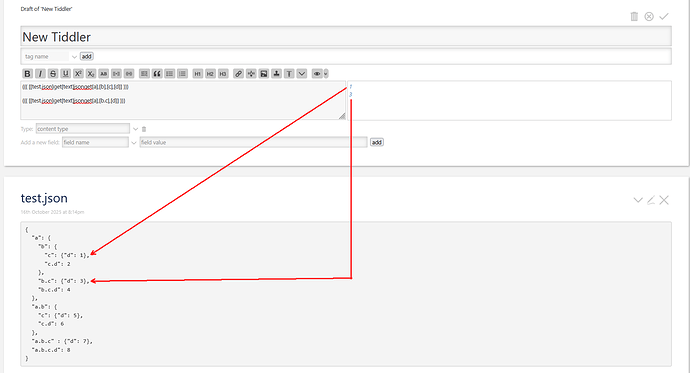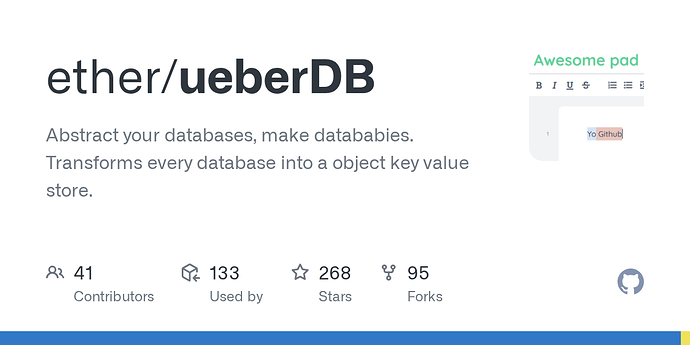One concern is that often we want to know when a key is NOT present, so we need to test for missing or blank values and return the result “Before splitting the key and looking deeper”. Perhaps a setting to allow or deny this would be wise. Whatever “synthetic key” is used to read needs to be returned as a literal key so it can be used.
I am not wishing to put a “kibosh” on this but just as TW5-Graph allows one to use the same data through multiple graphing engins we could also provide "a complete set of database query and write, operators and actions. which whilst they default to JSON can use another engin like SQL, IndexDB etc…
- Perhaps this need justifies an independant set of tools rather than trying to wedge them into existing ones, as clearly this seems to be a barrier to development.
Note:
I belive there are some more comprehencive JSON tools (I am looking for now)
Care of @Flibbles, one of his many impactful solutions.
See this TiddlyXML — XML features for Tiddlywiki
It refers to XML but as I understand it XML is a more structured way to handle what JSON does.
Features
- Query XML and HTML with XPath using the
xpathwidget and operator.- Query XML and HTML with CSS selectors using the
xselectwidget and operator.- XML tiddlers display correctly, and support XML processing instructions to render using a template tiddler.
- Allows for importing and exporting XML files.
See the demo website for documentation and examples.






